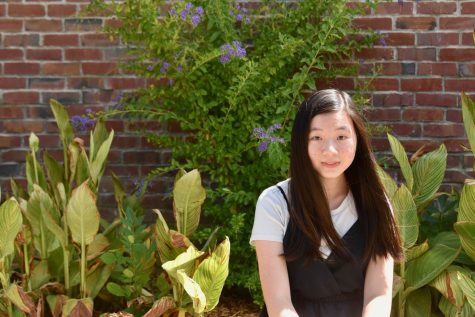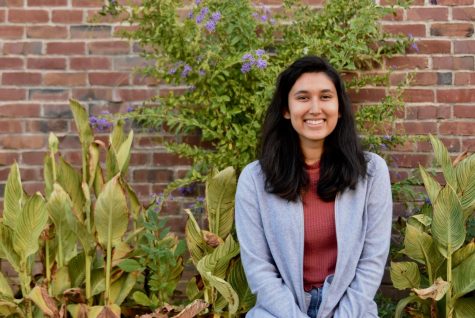A change in routine
August 26, 2017
Change — scary for some, but a boon for others — is believed by many to be an integral aspect of life. So important, in fact, that English teacher David Clarke welcomes it with open arms. Now teaching freshman Literature and Writing in addition to AP Literature, Clark remarks that each and every subject modification he has made in his career as an English teacher has stemmed from one source: his need for change.
“The reason for [making each transition] is always the same, which is that I get bored doing the same thing over and over again,” Clarke said. “At some point, you have to negotiate between doing something a number of years so you get better at it and then realizing when you’re just doing the same thing because it’s easier than challenging yourself in some other way.”
Although Clarke voluntarily chose to transition from teaching World Core to teaching Literature and Writing, sometimes that change is not always voluntary. For instance, when former AP Environmental Science teacher Andrew Goldenkranz joined administration as an Assistant Principal, many educators in the science department were confronted by possible changes in the classes they taught. Science teacher Lora Lerner, now teaching Physiology for the first time in eight years along with Biology, was among those affected by Goldenkranz’ move, and she comments that she initially had her reservations about the shift.
“Change is hard for everybody,” Lerner said. “There’s a part of me that was like, ‘I’ve been doing freshman biology. I’m really comfortable with that. I don’t know if I want to change.’”
Science teacher Kyle Jones, however, welcomed the idea of change, which led him to accept the offer and replace Goldenkranz as the new AP Environmental Science teacher.
“I decided to take [the opening] because I wanted to take a new challenge,” Jones said. “I’d been teaching Biology and Physiology for the last four years in a row so I felt like I wanted something new. I’m walking into this year knowing that it’s going to be a challenge, but [it will be] worth it, as I’ll learn many things along the way.”
Jones and Clarke echoed each other’s sentiments, both regarding change as another learning opportunity. Clarke also emphasized the fundamental role that change plays in personal development.
“If you want to continue to grow as a teacher and as an adult, you have to continue challenging yourself,” Clarke said. “Just because you’re no longer in school as a student doesn’t mean you’re not a student anymore. You have to keep learning. You have to keep growing. As a teacher, you have an obligation to do that because if we’re asking our students to do it, we have to be doing it ourselves.”
Unlike Clarke and Jones, the need for change wasn’t what sparked Lerner’s interest to teach Physiology. Rather, it was her interest and previous experience in the subject. This familiarity is one factor that helped her adapt to the changes brought upon by her transition from Biology to Physiology.
“I do still, believe it or not, have all my binders from Physiology,” Lerner said. “I found my box, which is funny because I haven’t taught it in eight or nine years, and I’ve moved since then. I went into my closet and lo and behold, I had a box, so I still have all my old papers and notes.”
While Lerner is able to use her past experience and notes as a resource, Jones, new to Environmental Science, attended an Environmental Science conference over the summer instead. Hosted by science teacher Andy Milbauer, the lectures and hands-on activities throughout the workshops supplied Jones with another tool to aid in his teaching. With this addition, Jones is now able to draw from a combination of resources to come up with lesson plans that meet the needs of all his students.
Clarke, however, employs an entirely different approach when planning lessons.
“The first time you ever teach a course or go back to teaching a particular course is—and I’m not gonna exaggerate—that you’re going to have to wing it,” Clarke said. “I’ve got to kind of play it by ear because I don’t necessarily have something to build off of. I know the target and I know the content, so I just figure out: how do I make sure that the students hit the target?”
The modification in curriculum is not the only adjustment that all three teachers have had to make in preparation for their change. In particular, Jones notes the difference in his approach to teaching an AP course, as well as the pressure that comes with preparing students for the AP exam.
While Jones adjusts to teaching an AP course, transitioning to teaching freshmen after primarily teaching older students is one change Clarke is getting accustomed to.
“Cognitively, freshman tend to be much more concrete,” Clarke said. “You have to think about their actual experience as opposed to generalized lessons that they can derive from their experiences. Sophomores are able to generalize a little more, so the material can be a little more difficult, a little bit more symbolic, but freshman have a harder time as a group with that.”
Lerner, on the other hand, is adjusting to the opposite situation — teaching juniors and seniors after solely teaching freshmen.
“I’m still sort of feeling my way because it has been awhile since I’ve had older students,” Lerner said. “It’s a totally different energy in the room and also the fact that it’s a different kind of a course. In a way, [in Physiology], I can let go of some of that structure and I don’t feel I have to specifically say how to do everything the way I do with freshmen.”
This experience has not only provoked changes in Lerner’s teaching style but has also shifted her viewpoint on change itself. Previously reluctant about teaching Physiology after such a long period of time, Lerner says she now embraces her role as an educator wholeheartedly.
“There’s some things I like here [in Physiology] that I don’t have in freshman [Biology],” Lerner said. “There’s a more relaxed vibe and that’s kind of nice. I appreciate that, and it’s a good reminder to me that we tend to get really uptight about change and to be okay with it because there’s almost always rewards too.”



















